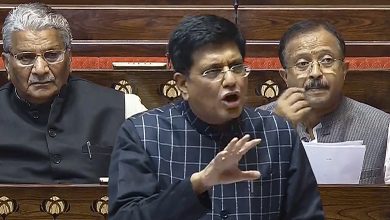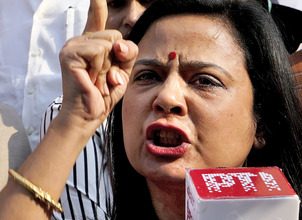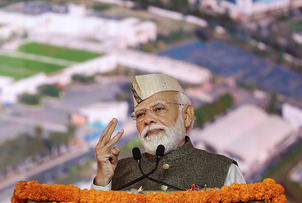‘About 5 % rebate to buyers of new cars on scrapping of old vehicles’

New Delhi, Mar 18 (PTI): Under the government’s vehicle scrapping policy, about 5 per cent rebate on new cars would be offered to buyers on scrapping of old vehicles, Union Minister Nitin Gadkari told Parliament on Thursday and termed it a “win-win” policy that will help improve fuel efficiency and reduce pollution. An advisory in this regard would be issued by the ministry, he said. The voluntary vehicle scrapping policy announced in the Union Budget for 2021-22 provides for fitness test after 20 years for personal vehicles while commercial ones would require it after the completion of 15 years. “The ‘Voluntary Vehicle-Fleet Modernisation Programme’ or ‘Vehicle Scrapping Policy’ will offer a rebate of about 5 per cent to buyers on new car purchases in lieu of scrapping of the old. “The vehicle manufacturers are advised to provide a discount of 5 per cent on purchase of new vehicle against the scrapping certificate,” Union Road Transport, Highways and MSMEs Minister Gadkari said.
He made a statement on the vehicle scrapping policy in both the Lok Sabha and the Rajya Sabha. “The scheme shall provide strong incentives to owners of old vehicles to scrap old and unfit vehicles through registered scrapping centres, which shall provide the owners with a scrapping certificate,” he said.
Listing the incentives, Gadkari said, “Scrap value for the old vehicle given by the scrapping centre will be approximately 4-6 per cent of the ex-showroom price of a new vehicle”.
The state governments may be advised to offer a road tax rebate of up to 25 per cent for personal vehicles and up to 15 per cent for commercial vehicles, he said. In addition, registration fees may also be waived for the purchase of a new vehicle against the scrapping certificate.
He said the Ministry of Road Transport and Highways will promote the setting up of Registered Vehicle Scrapping Facility (RVSF) across India and will encourage public and private participation for the opening up of such centres.
Efforts are also being made to set up Integrated Scrapping Facilities across India, he said, adding some of the identified places include Alang in Gujarat, where it is being planned to develop a highly specialized centre for scrapping among many other potential centres, where different scrapping technologies can be synergized together.
With a simplified registration process through a single window, the scrapping facility shall have to comply with environmental and pollution norms and with all applicable Acts.
It shall be ensured that the scrapping centres have an adequate parking facility, de-pollution equipment for air, water and sound pollution and adequate facilities for hazardous waste management and disposal, the minister said.
The ministry shall promote the setting up of automated fitness centres, on a PPP model, by the state government, private sector, automobile companies, he added.
The ecosystem is expected to attract additional investments of around Rs 10,000 crore and 35,000 job opportunities. This policy will result in an increase in GST to about Rs 40,000 crore, Gadkari said.
The policy is touted as a major step to boost the Indian automobile sector, reeling under the adverse impact of the COVID-19 pandemic.
According to him, the policy is aimed at reducing the population of old and defective vehicles, bringing down vehicular air pollutants, improving road and vehicular safety.
Besides, it will help in achieving better fuel efficiency, formalising the informal vehicle scrapping industry, and boost the availability of low-cost raw materials for the automotive, steel and electronics industry.
With the scrapping of old vehicles, raw materials such as plastic, copper, aluminium, steel and rubber will be recycled. This will bring down the cost component and help the industry become more cost-competitive.
The Road Transport and Highway Ministry will publish a draft notification for stakeholders’ comments in the next few weeks.
Under the policy, tentatively, rules for fitness tests and scrapping centres are likely to be applicable from October 1, 2021, while scrapping of government and PSU vehicles that are older than 15 years will be from April 1, 2022.
Mandatory fitness testing for heavy commercial vehicles is likely to be in force from April 1, 2023, and the same will be in place in a phased manner for other categories from June 1, 2024.
The minister said there are 51 lakh light motor vehicles that are older than 20 years and 34 lakh light motor vehicles that are older than 15 years.
Around 17 lakh medium and heavy commercial vehicles are older than 15 years without a valid fitness certificate, Gadkari said, adding older vehicles cause 10 to 12 times more pollution than fit ones.








